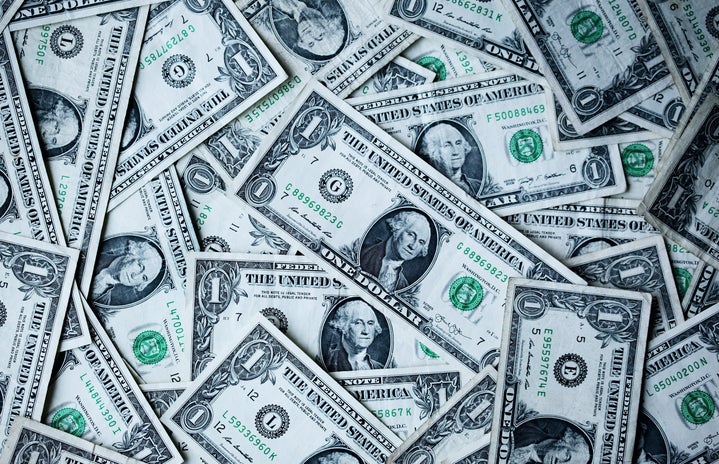Being a workaholic seems to be the only obsession that Americans don’t take seriously or look down upon. Sex, drug and alcohol addictions have a serious social stigma, but when someone’s life revolves around work — working on weekends and late nights and taking work home from the office — we applaud them for being dedicated and making bank. Capitalism has conditioned us to base our worth off productivity and monetary gain, so when we hear comments about not eating, sleeping or getting personal time because “work was so busy,” we let it slide. Pouring yourself over work is even seen as a brag or a flex, especially on social media where we praise the hustling, grind-never-stops mentality — anything to get your coin.
An article published in LinkedIn promotes this “hustler’s mentality,” explaining that you can “have it all if you put your time and energy to creating your vision.” Books on the boss bitch, rise and grind and hustling mindsets that are so pervasive in our culture allow people to profit off our obsession with making money and overworking. While there is no inherent issue in promoting productivity and loving what you do, pushing this narrative of no rest days and being in constant work mode often overlooks the consequence of burnout and oversimplifies the barriers that many people face in reaching their goals.

According to the World Health Organization, burnout is a syndrome “resulting from chronic workplace stress that has not been successfully managed.” A recent Gallup poll found that out of 7,500 full-time employees, two-thirds experience burnout on the job. This means that two-thirds of employees are vulnerable to the “physical, psychological and occupational consequences” that 2017 studies have proven stem from job burnout. These include insomnia, depressive symptoms, need for medication, mental health deterioration, job dissatisfaction, and absenteeism, just to name a few.
Marketing and encouraging the “on your grind” lifestyle without addressing how damaging it can be is dangerous, especially because overwhelming stress, fatigue and mental strain from work very quickly become normalized. We start to be embarrassed to reach out for help because we think, “That’s just how it is,” without acknowledging that toxic workplace environments and the social pressure to make money need changing.
Coupled with being a fast pass to burnout, the hustling mentality plays into the American Dream ideal that is often unattainable. The idea that if people just work hard enough they will be successful lends itself to the “pull yourself up by your bootstraps” mentality that is frequently used to blame people for their lack of success rather than blaming the systems that barred them from having the opportunities to succeed in the first place. A recent study concludes that “the American Dream remains fenced off for low-income children” even in prosperous areas of the country. The research points to income and racial segregation, as well as income inequality, as factors that inhibit “upward mobility for many disadvantaged children.” American cycles of poverty are extremely difficult to break out of, and so the hustling mentality sells a goal that, for many Americans, is impossible.

The previous study explained the opportunities for children, but even for those already in the workforce there are clear inequalities. The Gender Pay Gap Report for 2021 demonstrates that women make 82 cents to the man’s dollar, and PayScale reports that Black men make 87 cents to the man’s dollar. When we look at the intersection of racism and sexism, a recent report explains that “Black women in the United States who work full time, year-round are typically paid just 63 cents for every dollar paid to white, non-Hispanic men.” This country has many barriers to success for disadvantaged groups — whether that is women, people of color, low-income, disabled people, etc. — and simply working hard does not always cut it.
Women and people of color already have to work harder to make the same as their male and white counterparts, and when we couple this with the praise of grinding and being a “girl boss,” we see women and people of color disproportionately struggling with job burnout. A Cut article by Brianna Holt cites a study that concludes that “women are more likely to experience burnout from work because… they have less authority in the workplace,” and another that found that Black women “experience ‘accelerated biological aging’ as a result of repeated or prolonged stress.” The hustling mentality, if taken too seriously or pushed too hard, can be harmful for anyone, but when put on top of the stress and burnout already experienced by certain groups, the damage can be multiplied.




